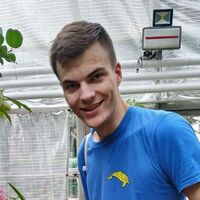Informatics from MU is looking for free dates for vaccinations

Currently, there are about 30,000 email addresses registered in the service, and the service has already sent 360,000 email notifications.
Author: Gabriela Peringerová for em.muni.cz
Ján Jančár works at the Faculty of Informatics MU and is doing a doctorate in applied cryptography. His field is not related to the solution of the epidemic and vaccination at COVID-19 at all. Nevertheless, this young computer scientist created a service that sends notifications about free dates for vaccination against COVID-19 in Slovakia.
The service is still running as a subpage on his personal website. However, Ján is talking about the fact that the service can run under the official website coronavirus in Slovakia and thus could serve a larger number of people. He considers coronavirus vaccination to be absolutely crucial in the fight against COVID-19. "It's great that science has brought us effective vaccines so quickly," he said. Since the launch of the vaccination system in Slovakia, he has been interested in the possibility of vaccinating his close ones.
He considers coronavirus vaccination to be absolutely crucial in the fight against COVID-19. "It's great that science has brought us effective vaccines so quickly," he said. Since the launch of the vaccination system in Slovakia, he has been interested in the possibility of vaccinating his close ones.
Jan found that the Slovak vaccination registration form does not allow pre-registration and that people can only register if specific dates are available. "People have to wait on the form page and watch the computer to see if new vacancies appear. This is an absurd procedure, especially at the moment when the age groups 70+ are vaccinated, " warns the computer scientist.
Therefore, he started sending automated SMS messages to his friends and acquaintances about vacancies. And there was so much interest in his service that he expanded it to include email alerts and PUSH notifications from the site. "Currently, there are about 30,000 email addresses registered in the service, and the service has already sent 360,000 email notifications."
Nonetheless, those who manage the system in Slovakia did not like this activity of informatics from Masaryk University. "It wasn't that easy with official positions. At one point, I was even blocked by the National Center for Health Information from accessing data on vacancies. But I solved everything with the centre, and we are in contact. At the moment, I work best with people from the official state website, where I am trying to move the service, " Jančár explains.
The system should ideally appeal to people alone, not the other way around. Subsequent registration and appointment should be as user-friendly as possible to not discourage anyone from getting vaccinated.
Jančár does not yet plan to expand the service to another country than Slovakia but criticizes those who released the systems in the Czech Republic and Slovakia. "I don't know much about the Czech reservation system, I didn't have the opportunity or time to explore it, but I know that it also has its shortcomings. I would like to say that creating an ideal system is difficult, but no one should make excuses that it is an unexpected contract. Widespread vaccination as a solution to a pandemic has been mentioned since the beginning of the fight against the disease, and therefore the planning of the vaccination system should have started in advance. A functioning vaccination system should be far more than just a registration form. And many people don't realize that. The system should ideally appeal to people alone, not the other way around. Subsequent registration and appointment should be as user-friendly as possible so that it does not deter anyone from vaccinating, " says the computer scientist, adding that the system in the UK should be a great inspiration, where it manages to vaccinate a record number of people quickly.
In the future, Jančár wants to find more time for research within his specialization at the Center for Research on Cryptography and Security. It continues to seek IT assistance in the fight against coronavirus and support the initiative and the research team Science Helps.